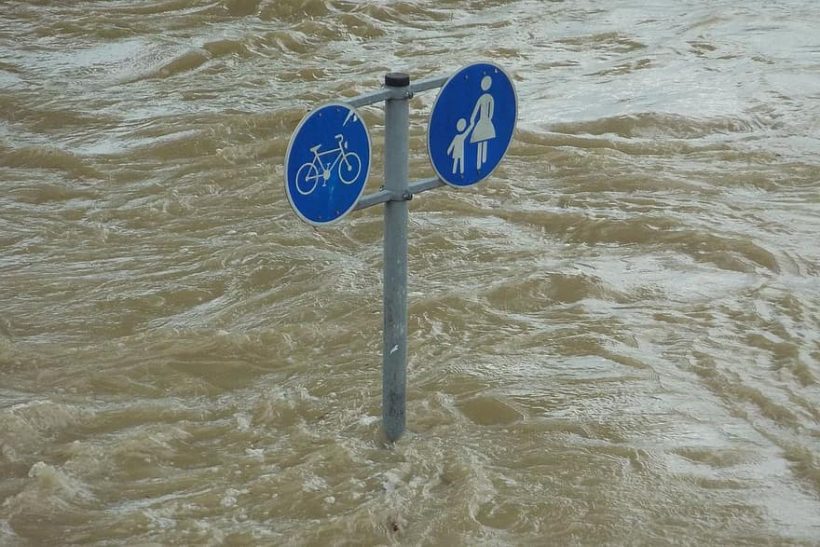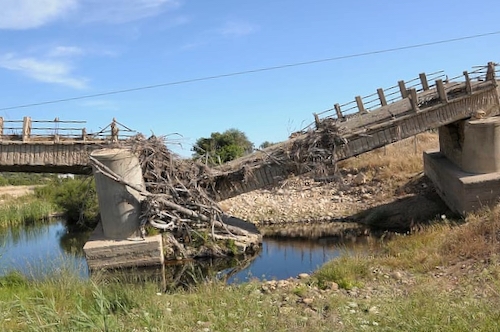The fragility of our infrastructures and modes of living seldom become as ubiquitously palpable as they have with the current COVID-19 pandemic. The spread of the corona virus has fundamentally challenged taken-for-granted life rhythms, mobility patterns and forms of sociality, albeit with unevenly distributed consequences still impossible to grasp in their eventual impact. More than anything, the pandemic has suddenly foregrounded failure, breakdown, and dysfunction as conditions that have always been virtually present and looming in the backgrounds of our daily lives.
Observations of failure, breakdown and dysfunction are frequently made with reference to abstract and large-scale objects such as system, capitalism, planet, or climate. But numerous smaller-scale expressions may be found also when zooming in on the level of the mundane.
Beyond the context of the current emergency, theorists have long noted how in our contemporary condition of late capitalism, failure and crisis seem to be not only inevitable, but integral aspects of how our politico-economic system operates. As Dimitris Dalakoglou and many alongside him have observed, failure appears to be a means whereby this system reflects, revises and restarts, although without ever challenging any underlying structures (Dalakoglou 2017: xiii). Without downplaying the effects of the still unfolding pandemic, we thus extend our interests in this introduction to the fragility of how things hold together more generally (Gan and Tsing 2018).
 Observations of failure, breakdown and dysfunction are frequently made with reference to abstract and large-scale objects such as system, capitalism, planet, or climate. But numerous smaller-scale expressions may be found also when zooming in on the level of the mundane.
Observations of failure, breakdown and dysfunction are frequently made with reference to abstract and large-scale objects such as system, capitalism, planet, or climate. But numerous smaller-scale expressions may be found also when zooming in on the level of the mundane.
For instance, in his foreword to The Material Culture of Failure, Dalakoglou observes how we are increasingly surrounded by “cheap and fragile stuff” that is prone to fail and fall apart, and which does so “with disproportionate frequency” (2017: xiii). Likewise, Mark Fisher (2009) suggested that “capitalism is inherently dysfunctional” by drawing on observations of the dramatic rise of mental health problems. What he denotes a “mental health plague” signals how the cost of making capitalism appearing to work is higher than we may sometimes think (Fisher 2009: 19). Experiences of everyday, smaller-scale occasions of failure become interpreted as expressions of something larger and systemic, something that theorists posit as increasingly characterized by failure and dysfunction.
The idea behind this thematic thread, and the symposium that preceded it, arose out of such mundane observations. We had just returned from fieldwork in Kosovo, Georgia, and Peru. Sitting around our kitchen table in our emblematic post-industrial Manchester brick house, we were wondering what we were to do about our leaking roof, strange smells, and mice. On top of this, we had passed on an unforgiving flu to each other, which showed no signs of subsiding. We suspect that it was all these things in conjunction that directed our attention to how we had all also experienced and observed various forms of failure, breakdown, or dysfunction in our respective fields. Akin to how we complained about our new home, our interlocutors too would frequently invoke these concepts to make sense of their own conditions.
It is difficult to tell whether or not the currently omnipresent sense of failure, dysfunction, and breakdown is specific to our contemporary condition of late capitalism.
It is difficult to tell whether or not the currently omnipresent sense of failure, dysfunction, and breakdown is specific to our contemporary condition of late capitalism. Yet, alongside numerous other authors (Appadurai and Alexander 2019; Beekers and Kloos 2017; Carroll et al. 2017; Howe and Takaragawa 2017; Martínez and Laviolette 2019), we wish to interpret the ubiquity of these diagnoses as a sign of their importance for ethnographic inquiry more broadly considered. These concepts are integral aspects of how the everyday holds together and is made sense of. Hence, we are curious about their meanings, multiplicities, and uses as descriptive and sense-making devices. We also wonder what their capacities are as heuristics for making sense of the contemporary.
Ethnographic attention to breakdown has been prominent in studies of infrastructure and technology for quite some time now. It is from here that we take much of our inspiration, but we find in this attention also trajectories that stretch back to more long-running anthropological interests. Consider, for example, how scholars have long framed social and cultural phenomena as achievements that require laborious maintenance, attention, and care. This has been the case for symbols, ideas, and subjectivities, as well as organizations, technologies, and environments. A classic example may be found in the Manchester School founder Max Gluckman’s (1963) notion of rituals as mechanisms to reaffirm social order. Yet it is an interest that reaches also into contemporary inquiry into a wide array of phenomena. Not least infrastructure and technology, where holding is increasingly perceived as something that cannot be taken for granted and becomes, instead, the very thing that requires explanation. Concomitantly, this has steered ethnographic attention to situations in which such assemblages do not hold. Breakdown thus emerges as a fruitful object of study, as it often foregrounds otherwise hidden relations and silent work both to the ethnographer (Star 1999) and to interlocutors (Morita 2014).
What happens when dysfunction becomes the very fabric of everyday life?
In this thematic thread, we draw inspiration from this emergent focus on breakdown but broaden its scope to encompass also failure and dysfunction as additional modalities through which holding becomes contested. By attending to these issues ethnographically in Taiwan (Breen), Tanzania (Haberland), Peru (Ojani), India (Perczel), Russia and Kyrgyzstan (Reeves), Malaysia (Rudge), and the UK (Sartori, Taylor), the contributors reveal their embeddedness in disparate and situated moral, economic, and social frameworks. Some of the overarching questions raised are: What happens when dysfunction becomes the very fabric of everyday life, and how does this impinge upon hopes and expectations? What does failure do, both as discursive category and lived experience, and how do people make sense of and deal with such conditions? How can moments of breakdown operate as productive events with unanticipated effects? In short, what happens when things don’t hold?
While asking these questions, we also carefully point out that a focus on failure, breakdown and dysfunction should not by any means be understood exclusively as a call for “dark anthropology” (Ortner 2016). Rather, the following contributions demonstrate how a study of how things fail to hold can also be sustained by approaches with an open-ended or hopeful bent.
While productively orienting our attention to the integration of perpetual failure in new business models (Taylor), the way narratives of dysfunction help fashion successful business cases (Perczel), or how such discourses can be riddled with classed and racialized tropes (Sartori), these anthropologies also remain sensible to the interstitial and generative spaces engendered when things don’t hold, not least by attending to how failure might yield various forms of knowledge and inventiveness. In this connection, they consider the way failure may allow one to feel God (Breen), render speculatively conceivable otherwise backgrounded relations (Ojani), and how successfully being categorized as failed can help create certain opportunities (Haberland). Failure and breakdown, they observe, can even be intrinsic to certain forms of multispecies entanglement (Rudge). Finally, we learn how everyday temporal disjunctures – “failing time” – among undocumented migrant workers can be understood within the framework of “a political economy of necessary asynchronicity” (Reeves). Importantly, an anthropology of how things do not hold allows us to explore not only the ways people envision alternative futures, but might likewise help us enact different modes of knowing. Attention to how these conditions are made sense of emically displaces our own preconceptions and bring something unexpected into view.
Should failure always and everywhere be understood in opposition to success ?
This entails several challenges. As anthropologists, we must above all ask whose failures we are talking about. That is, for whom is something a failure? We further wonder whether an anthropology of failure might be any different from an anthropology of success and, moreover, if failure should always and everywhere be understood in opposition to success in the first place? What does an anthropology of failure, breakdown and dysfunction do? Why is it important now? The contributions to this thematic thread attend to these questions in multiple ways, not least by way of example. Together they show how failure, breakdown, and dysfunction might not just serve as productive analytic categories, but many times become that to which our interlocutors steer our attention and oblige us to tell stories about.
References
Appadurai, Arjun, and Neta Alexander. 2019. Failure. Cambridge: Polity Press.
Beekers, Daan, and David Kloos, eds. 2017. Straying from the Straight Path: How Senses of Failure Invigorate Lived Religion. New York and Oxford: Berghahn Books.
Carroll, Timothy, David Jeevendrampillai, Aaron Parkhurst, and Julie Shackelford, eds. 2017. The Material Culture of Failure: When Things Do Wrong. London and New York: Bloomsbury.
Dalakoglou, Dimitris. 2017. “Foreword: Failure and Fragility: Towards a Material Culture of the End of the World as We Knew It.” In The Material Culture of Failure: When Things Do Wrong, edited by Timothy Carroll, David Jeevendrampillai, Aaron Parkhurst, and Julie Shackelford, xii–xv. London and New York: Bloomsbury.
Fisher, Mark. 2009. Capitalist Realism: Is There No Alternative? Winchester: Zero Books.
Gan, Elaine, and Anna Lowenhaupt Tsing. 2018. “How Things Hold.” Social Analysis 62 (4): 102-145. DOI: 10.3167/sa.2018.620406.
Gluckman, Max. 1963. Order and Rebellion in Tribal Africa. London and New York: Routledge.
Howe, Cymene, and Stephanie Takaragawa. 2017. “Failure.” Theorizing the Contemporary, Fieldsights, July 27.
Martínez, Francisco, and Patrick Laviolette, eds. 2019. Repair, Brokenness, Breakthrough: Ethnographic Responses. New York and Oxford: Berghahn Books.
Morita, Atsuro. 2014. “The Ethnographic Machine: Experimenting with Context and Comparison in Strathernian Ethnography.” Science, Technology, and Human Values 39 (2): 214–35. DOI: 10.1177/0162243913503189.
Ortner, Sherry. 2016. “Dark Anthropology and its Others: Theory Since the Eighties.” HAU: Journal of Ethnographic Theory 6 (1): 47-73. DOI: 10.14318/hau6.1.004.
Star, Susan Leigh. 1999. “The Ethnography of Infrastructure.” American Behavioral Scientist 42 (3): 377–91. DOI: 10.1177/00027649921955326.
Images:
Featured Image: photo (cropped), found on Pikist.
Flood photo, found on Pikist.
Broken beach in Sardinia, found on Pikist.
Wipe Out, Photo by Gary Swan, found on Wikimedia Commons, (CC BY 3.0).









